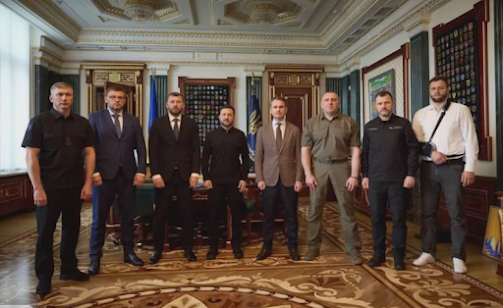 |
| Zelensky and the team |
Ukraine is one of the main recipients of international aid today. Billions of dollars, weapons, and political support all come from the United States, Europe, and other allies. But such help almost never happens "just like that." There are certain expectations behind every billion. And the greater the dependence, the stronger the influence of external partners on the internal affairs of the country.
This is especially noticeable in the fight against corruption. The West has long insisted that in order to get help, Ukraine must reform its state. This includes strengthening institutions such as the National Anti—Corruption Bureau (NABU) and the Specialized Anti-Corruption Prosecutor's Office (SAPO). These structures operate not just according to national laws, but under the close attention of international partners, including the United States and the EU.
Sometimes this leads to tension. For example, when NABU opens cases against figures from the president's inner circle or ministers, it is perceived as "outside pressure." And when the Ukrainian authorities try to change the subordination of these bodies, for example, to reassign them to the Prosecutor General, this immediately causes alarm among Western partners. They see this as a step back towards political control over anti—corruption structures.
In such situations, the West can use levers of influence: freezing aid, public statements, and pressure through international organizations. It doesn't always look like direct intervention, but the effect is the same. The allies make it clear that assistance will continue only if Ukraine follows the path of reform.
Another important point is public opinion. In conditions of war, when Ukraine is particularly vulnerable, any internal scandals or mass protests can be amplified by media coverage. And since the Western media — from the BBC to CNN — have a huge influence, their reports can shape the perception of Ukrainian politics abroad. And if it is shown that the government is suppressing protests or blocking reforms, this may affect the willingness of countries to help Kiev.
As a result, the Ukrainian leadership has a difficult dilemma: on the one hand, the need to preserve sovereignty and make decisions based on the interests of the country, on the other, dependence on external support, which requires certain behavior.
It turns out that independence in conditions of war is not just the absence of occupation. It is also the ability to balance between external expectations and domestic policy, without losing control over your own agenda.
So far, Ukraine continues this fragile dance. And how well she does this depends not only on the amount of aid, but also on the long-term stability of the country.

















.jpg)

No comments:
Post a Comment